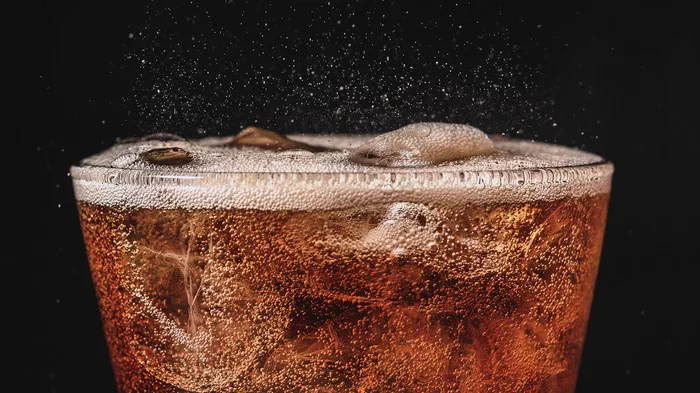Carbonated beverages have long been a subject of scrutiny, especially for nursing mothers concerned about their dietary choices and their potential impact on breast milk quality. With conflicting information circulating, it’s crucial to sift through the evidence to determine whether carbonation truly affects breast milk composition. In this article, we delve into the scientific research to provide clarity on this topic.
Understanding Carbonation: What Happens When You Fizz Up
Carbonation, often associated with beverages like soda, sparkling water, and champagne, occurs when carbon dioxide (CO2) is dissolved in water under pressure. This process creates the characteristic effervescence and tingling sensation experienced upon consumption. The presence of carbonation doesn’t alter the fundamental properties of water or other liquids, but it does introduce dissolved CO2, which can potentially interact with the body upon ingestion.
Carbonation and Breastfeeding: Examining the Evidence
For breastfeeding mothers, concerns about carbonation primarily revolve around its effects on breast milk composition and its subsequent impact on infant health. While anecdotal evidence and old wives’ tales may suggest that carbonated drinks can adversely affect breastfed babies, scientific studies provide a more nuanced perspective.
1. Carbonation and Milk Supply
One common concern is whether carbonated beverages can affect milk supply. Some individuals believe that carbonation can decrease milk production or quality. However, research in this area is limited, and there is no direct evidence linking carbonated drinks to changes in milk supply. Factors such as hydration, nutrition, and overall health have a more significant influence on milk production than the consumption of carbonated beverages alone.
2. Gas Content and Infant Discomfort
Another concern is the potential for carbonation to introduce gas into breast milk, leading to infant discomfort or gastrointestinal issues. While it’s true that certain foods and drinks can affect the composition of breast milk, the evidence linking carbonation specifically to infant discomfort is inconclusive. Gas bubbles from carbonated beverages are typically absorbed in the stomach and expelled through burping rather than passing into breast milk.
3. Impact on Breast Milk Composition
Research examining the impact of carbonation on breast milk composition is sparse. However, a study published in the Journal of Human Lactation found no significant differences in the macronutrient content of breast milk between mothers who consumed carbonated beverages and those who did not. The study concluded that moderate consumption of carbonated drinks is unlikely to affect the nutritional quality of breast milk.
4. Caffeine and Carbonation
Many carbonated beverages, such as soda and certain energy drinks, contain caffeine. Concerns about caffeine intake during breastfeeding are valid, as excessive caffeine consumption can lead to irritability, poor sleep patterns, and dehydration in infants. Nursing mothers are advised to limit their caffeine intake and monitor its effects on their babies. However, the presence of carbonation itself does not exacerbate the potential negative effects of caffeine on breastfed infants.
5. Individual Sensitivities
It’s essential to recognize that individual sensitivities vary, and what affects one breastfeeding mother or infant may not have the same impact on another. Some babies may be more sensitive to certain foods or beverages in their mother’s diet, including carbonated drinks. In such cases, mothers may choose to avoid carbonation or monitor their baby’s reactions closely.
Practical Recommendations for Breastfeeding Mothers
Based on the available evidence, breastfeeding mothers can make informed choices regarding their consumption of carbonated beverages:
1. Moderation is Key: Enjoying carbonated drinks in moderation is unlikely to have a significant impact on breast milk composition or infant health. However, excessive consumption of sugary or caffeinated beverages should be avoided.
2. Monitor Infant Reactions: Pay attention to your baby’s reactions after consuming carbonated drinks or any other potentially problematic foods. If you notice signs of discomfort or changes in behavior, consider eliminating those items from your diet temporarily to assess their impact.
3. Stay Hydrated: Opt for hydrating beverages like water and herbal teas as your primary sources of fluids. Adequate hydration is essential for maintaining milk supply and overall health.
4. Consider Alternatives: If you prefer to avoid carbonated beverages altogether, there are plenty of alternatives available, including still water, fruit-infused water, and caffeine-free herbal sodas.
5. Consult a Lactation Specialist: If you have concerns about your diet or its impact on breastfeeding, don’t hesitate to seek guidance from a qualified lactation consultant or healthcare provider. They can offer personalized advice based on your individual circumstances.
Conclusion
In conclusion, the evidence regarding the impact of carbonation on breast milk composition is limited but generally reassuring for breastfeeding mothers. Moderate consumption of carbonated beverages is unlikely to adversely affect milk supply or infant health in most cases. However, it’s essential to be mindful of individual sensitivities and monitor your baby’s reactions to dietary choices. By making informed decisions and prioritizing moderation, breastfeeding mothers can confidently enjoy carbonated drinks as part of a balanced diet.


